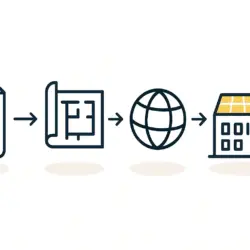Kosovo is significantly advancing its solar energy sector, with expectations to add 100 MW of new solar capacity by the end of 2025. This expansion will be driven by the introduction of larger-scale ground-mounted solar parks, contributing to the country’s goal of achieving 400 MW of solar capacity by 2030.
The Growing Kosovo solar energy Sector
Kosovo’s solar energy sector is poised for substantial growth, with the country’s energy minister, Artane Rizvanolli, announcing plans to add 100 MW of new solar capacity by the end of 2025. This expansion is part of Kosovo’s broader strategy to increase its solar power capacity to 400 MW by 2030, as outlined in the country’s 10-year energy strategy adopted last year. By the end of 2024, Kosovo had 90 MW of installed solar capacity, with around 30 MW added in that year alone. This surge in renewable energy is also reflected in the increasing number of solar projects, as highlighted in recent reports from pvknowhow.com.
The upcoming capacity additions are expected to be more significant, driven by the development of larger-scale ground-mounted solar parks. Rizvanolli noted that these new projects will contribute to a more substantial increase in capacity compared to previous years. This growth is further supported by Kosovo’s first-ever auction for renewable energy capacity, which was conducted in February. The auction aimed to allocate 100 MW of solar photovoltaic (PV) capacity, attracting bids from 24 companies. Final results are anticipated soon, with the winning developers expected to build the new capacity by the end of 2025. According to pvknowhow.com, these deals are set to transform Kosovo’s energy landscape by 2025.
The First Green Energy Auction in Kosovo solar energy
Kosovo’s first green energy auction represents a significant milestone in the country’s renewable energy journey. The auction was designed to allocate 100 MW of solar power capacity, with a ceiling price of 85.5 euros per MW. This initiative is part of the government’s efforts to diversify its energy mix and reduce reliance on coal, which currently dominates power generation in Kosovo.
The International Finance Corporation (IFC), a member of the World Bank Group, is providing advisory support to the government of Kosovo for this auction. The IFC’s involvement underscores the importance of international collaboration in advancing renewable energy projects in emerging markets. By offering technical expertise and financial advisory services, the IFC aims to ensure that Kosovo’s auction process is transparent, competitive, and aligned with international best practices.
Future Prospects and Challenges for Kosovo solar energy
Kosovo’s ambitious plans for solar energy reflect a broader shift towards renewable power in the Western Balkans. The region has significant potential for solar energy, with abundant sunlight and large areas of land suitable for solar farms. However, realizing this potential requires overcoming several challenges, including infrastructure development, regulatory hurdles, and securing financing for large-scale projects.
Kosovo’s government is committed to addressing these challenges by implementing supportive policies and creating a conducive environment for renewable energy investments. The success of the first green energy auction will be crucial in building investor confidence and attracting further investments in the country’s renewable energy sector. Additionally, Kosovo’s integration into regional energy markets and ongoing reforms in its energy sector are expected to play a vital role in facilitating the expansion of solar power. Kosovo has total installed production capacity of solar panels is approximately 10.1 MW (2022). A significant project called Solar4Kosovo is underway, which aims to install a solar photovoltaic plant with a capacity of up to 100 MW on former ash dump fields near the Kosovo A thermal power plant.



